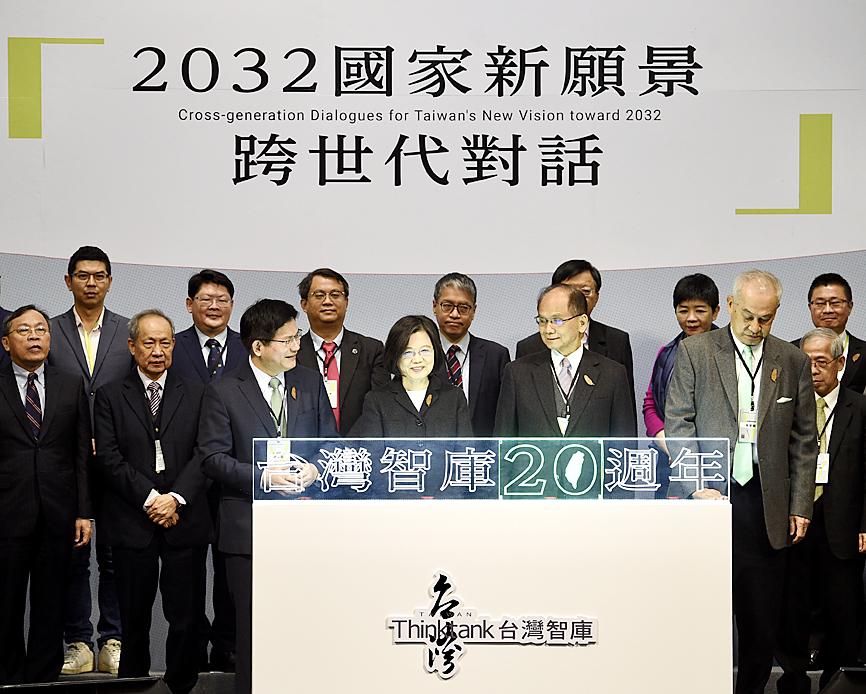Former minister of transportation and communications Lin Chia-lung (林佳龍) has reportedly been selected for the new position of ambassador-at-large for digital New Southbound Policy initiatives.
President Tsai Ing-wen (蔡英文) favors Lin for the role, which is to serve as a liaison between the government and private sector, a source said.
Administrative affairs would be handled by National Security Council advisory member Fu Don-cheng (傅棟成).

Photo: Peter Lo, Taipei Times
Lin’s office said that the former minister closely monistors the nation’s industrial development, although he at the moment is focusing on the Jan. 9 Taichung legislative by-election and did not comment further on the position.
Lin, who served as Taichung mayor from 2014 to 2018, stepped down as transportation minister in April following a deadly Taroko Express train crash earlier that month.
The government is looking to take advantage of Taiwan’s digital strengths to add momentum to its New Southbound Policy and open avenues for development, a source said.
Established shortly after Tsai took office in 2016, the policy aims to enhance ties with 18 countries in the Indo-Pacific region: Australia, Bangladesh, Bhutan, Brunei, Cambodia, India, Indonesia, Laos, Malaysia, Myanmar, Nepal, New Zealand, Pakistan, the Philippines, Singapore, Sri Lanka, Thailand and Vietnam.
At an industrial innovation summit last month in Taichung, Tsai held talks with academic and industrial partners.
She also reportedly spoke with Lin, who was attending in his capacity as honorary chairman of the hosting foundation.
Afterward, at an anniversary event for the Taiwan Thinktank, Lin reportedly advised Tsai on the development potential of integrating digital initiatives in the New Southbound Policy.
Centering Taiwan’s Indo-Pacific strategy around its digital strengths would not only expand the nation’s influence from the first island chain into the wider region, but also serve its larger growth and security interests, people familiar with the decision said.

Alain Robert, known as the "French Spider-Man," praised Alex Honnold as exceptionally well-prepared after the US climber completed a free solo ascent of Taipei 101 yesterday. Robert said Honnold's ascent of the 508m-tall skyscraper in just more than one-and-a-half hours without using safety ropes or equipment was a remarkable achievement. "This is my life," he said in an interview conducted in French, adding that he liked the feeling of being "on the edge of danger." The 63-year-old Frenchman climbed Taipei 101 using ropes in December 2004, taking about four hours to reach the top. On a one-to-10 scale of difficulty, Robert said Taipei 101

Nipah virus infection is to be officially listed as a category 5 notifiable infectious disease in Taiwan in March, while clinical treatment guidelines are being formulated, the Centers for Disease Control (CDC) said yesterday. With Nipah infections being reported in other countries and considering its relatively high fatality rate, the centers on Jan. 16 announced that it would be listed as a notifiable infectious disease to bolster the nation’s systematic early warning system and increase public awareness, the CDC said. Bangladesh reported four fatal cases last year in separate districts, with three linked to raw date palm sap consumption, CDC Epidemic Intelligence

Two Taiwanese prosecutors were questioned by Chinese security personnel at their hotel during a trip to China’s Henan Province this month, the Mainland Affairs Council (MAC) said yesterday. The officers had personal information on the prosecutors, including “when they were assigned to their posts, their work locations and job titles,” MAC Deputy Minister and spokesman Liang Wen-chieh (梁文傑) said. On top of asking about their agencies and positions, the officers also questioned the prosecutors about the Cross-Strait Joint Crime-Fighting and Judicial Mutual Assistance Agreement, a pact that serves as the framework for Taiwan-China cooperation on combating crime and providing judicial assistance, Liang

US climber Alex Honnold left Taiwan this morning a day after completing a free-solo ascent of Taipei 101, a feat that drew cheers from onlookers and gained widespread international attention. Honnold yesterday scaled the 101-story skyscraper without a rope or safety harness. The climb — the highest urban free-solo ascent ever attempted — took just more than 90 minutes and was streamed live on Netflix. It was covered by major international news outlets including CNN, the New York Times, the Guardian and the Wall Street Journal. As Honnold prepared to leave Taiwan today, he attracted a crowd when he and his wife, Sanni,